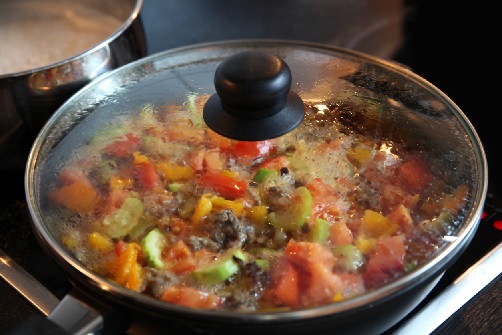Spices are one of the most common bases for Indian food. They are used in most meals, and they give Indian food the stereotypical kick they have, especially for people who love how the different spices work together. Some of the benefits of Indian spices have been known for a long time, but scientific research is still being carried out to uncover additional benefits of these spices. From what we already know today, here are some of the benefits of different Indian spices.
Cinnamon
This is an aromatic spice that is typically used in Indian cuisines due to its oils. The main compound in this spice is cinnamaldehyde and it is thought to be responsible for the health benefits of adding this spice to Indian foods.
Cinnamon also contains a very high number of antioxidants, with levels that surpass oregano and garlic. The anti-inflammatory properties of these antioxidants can prevent the development of free radicals in the body. These free radicals damage the nervous system as well as other body cells. The antioxidants in cinnamon help prevent this in addition to helping keep cholesterol levels low.
By keeping cholesterol levels low, cinnamon has also been shown to help reduce the risk of heart disease.
Turmeric
Turmeric is a bright yellow spice used in many Indian dishes to give them their characteristic colour. Turmeric is related to ginger, and it is also known for its anti-inflammatory properties, in addition to having a great favour and colour additive to many Indian dishes. If you order Indian food from the best Bristol Indian restaurant, chances are that the food will contain turmeric because it is so widely used.
The main compound in turmeric is curcumin which has been shown to have medicinal properties. Specifically, this and similar compounds have been shown to lower the risk of heart attacks. Curcumin can also delay or reverse cognitive and memory issues associated with old age in addition to helping with depression.
Coriander
The seeds and leaves of this plant are used in Indian cooking and can even form part of garam masala, a spice that is composed of different ground spices. Coriander has both antifungal and antimicrobial properties. It has also been shown to reduce cholesterol levels, blood sugar and blood pressure.
The seeds of this aromatic spice as well as its oils and extracts have been heavily studied and shown to stimulate the release of insulin from the beta cells of the pancreas. By doing so, they can help keep blood sugar low.
Note that eating coriander or its seeds and extract is not advisable for those with low blood sugar and those already taking insulin. This is because coriander seeds, extracts and oils can make their blood sugar levels plummet further which could be life-threatening.
Cumin
In addition to being used in Indian food, cumin has been used for a long time in traditional medicine. Cumin can help ease digestive issues, reduce infections and help manage blood sugar levels.
The different spices that are used in Indian cuisines have health benefits that cannot be ignored. If you do not like eating Indian food, you can borrow some of their spices to use in your own recipes.
Also Read About: Energy-Efficient UK Cooking methods



